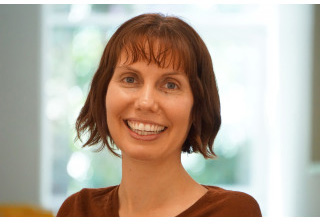

Fierce competition for medical research funding makes many researchers loath to disclose in grant applications their career disruptions, such as illness or childbirth, to explain research output gaps for fear of appearing ‘weak’ or unable to fulfil long-term research.
- Inconsistent adjustments for career disruptions possible cause for loss of female researchers
- Disclosing personal details to explain career breaks fraught with privacy concerns
- Applicants tend to claim less time off for depression compared with a break to look after a baby
A survey of Australian researchers by QUT academics led by Professor Adrian Barnett from the Australian Centre for Health Services Innovation and Centre for Healthcare Transformation also found inconsistency in how career breaks were adjusted for by peer reviewers.
“In Australia the peer reviewers of funding applications should make appropriate adjustments when assessing applications to account for disruptions in research output,” Professor Barnett said.
“However, we found inconsistencies in adjustments such that those who chose not to provide medical details of their career break for privacy reasons were given less adjustment time.
“And applicants would claim less time off if they had depression compared with a break to look after a baby.”
Professor Barnett conducted the study under a National Health and Medical Research Council (NHMRC) Research Fellowship to, in part, investigate the persistent shortfall of women awarded NHMRC funding at senior levels.

“Australia’s funding systems rely heavily on researchers’ track records, meaning a break in research productivity could lead to unsuccessful applications due to life circumstances they cannot control,” he said.
“Many researchers in health and medical disciplines depend on grant funding to continue their research. So, for those whose applications are unsuccessful, it can be the end of a career.
“Researchers who take a break due to illness or, for example, caring for a partner with cancer, have the trauma of the situation and the knowledge that they could lose their career to deal with at the same time.
“The survey responses showed 13 per cent of the applicants had had career disruptions but did not include them in funding applications.
“A common reason for career disruptions is caring for children, an issue often keenly felt by female researchers.
“While the NHMRC has a gender equity strategy to reduce this gap, insufficient adjustments for career disruptions could be one of the causes of the funding gap for women, with more mid-career women leaving research to care for children and thus fewer women applicants at senior level.”

QUT co-researcher and co-author of the study Dr Susanna Cramb said survey respondents indicated privacy concerns prevented some applicants from disclosing information.
“Many people did not want to share details of personal circumstances which is totally understandable,” Dr Cramb said.
“Even if documents are handled appropriately and confidentially, reviewers could remember the details shared – and these people could be your future colleagues, collaborators, or employers.
“Some things are easy to admit, such as a skiing injury or childbirth, others cannot be hidden when meeting face-to-face such as requiring a wheelchair.
“However, there are reasons that are not obviously visible, that could have repercussions on how people view your capability as a researcher. In academia, your reputation is key.
“Academia was originally designed by men for men, and a consistent message is that being awarded a grant is hard. Perhaps in this environment women are more likely to fear appearing weak, so less likely to claim appropriately for their genuine career disruptions?”
Meta-research: Justifying career disruption in funding applications, a survey of Australian researchers was published in eLife Sciences.








































